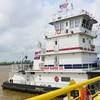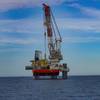Gasum, Wärtsilä Join Forces to develop Gas Value Chain
New joint co-operation between Gasum and Wärtsilä aims to develop the utilization and distribution of natural energy gases in marine and land markets.
Gasum, the Nordic leader in natural gases and Wärtsilä, a global leader in advanced technologies and complete lifecycle solutions for the marine and energy markets have signed a Joint Co-operation Agreement aimed at developing the utilization and distribution of natural energy gases in marine and land markets. The agreement between Gasum and Wärtsilä was signed August 29, 2016 and will run for several years.
The purpose of the agreement is to develop the Gas Value Chain in order to advance carbon neutrality. The co-operation is aimed to benefit the customers by providing efficient and sustainable energy solutions, and consists of several development areas within the value chain including Smart Power Generation, gas as a fuel in the marine market, biogas market, LNG/LBG distribution and maintenance & operations.
“I’m very pleased with the joint co-operation agreement between Gasum and Wärtsilä, as we’re able to improve access to natural gas solutions as efficient and clean energy alternatives in the marine and land markets,” says Gasum CEO and Chair of the Skangas Board of Directors Johanna Lamminen.
“Wärtsilä has taken a leading position in both the energy and shipping markets as a developer of advanced technology solutions that enable the practical and efficient use of natural gas fuel. This agreement with Gasum will help speed the transition to gas fuel and advance environmental sustainability,” says Wärtsilä President and CEO, Jaakko Eskola.
Gas fuelled marine vessels are seen as being a logical means for ship owners and operators to comply with increasingly stringent environmental legislation. In addition to the environmental benefits that LNG fuel offers, the shipping industry is increasingly looking to gas as a means of reducing operating costs. This agreement aims at increasing and easing the availability of natural gas for marine use, as well as developing the supply chain and the infrastructure. The development work regarding LNG in marine traffic will also utilize the expertise of Gasum subsidiary Skangas, the leading LNG player in the Nordic market.
Improving the availability of LNG will serve not only marine traffic but also the increasing needs of industrial clients outside the natural gas grids and future needs of heavy duty traffic. The LNG infrastructure also allows for the use of liquefied biogas (LBG) without any additional investments.








